In the midst of a devastating hunger crisis, Tom Price shares some of the personal stories and moving moments that he captured on camera during his recent trip to Kenya with Tearfund to report on the situation there.
Kenya reflections: a photo journey with Tom Price
Award-winning photographer, Tom Price, reflects on his trip to Kenya to report on the hunger crisis in the region.
Written by Tom Price | 18 Mar 2023


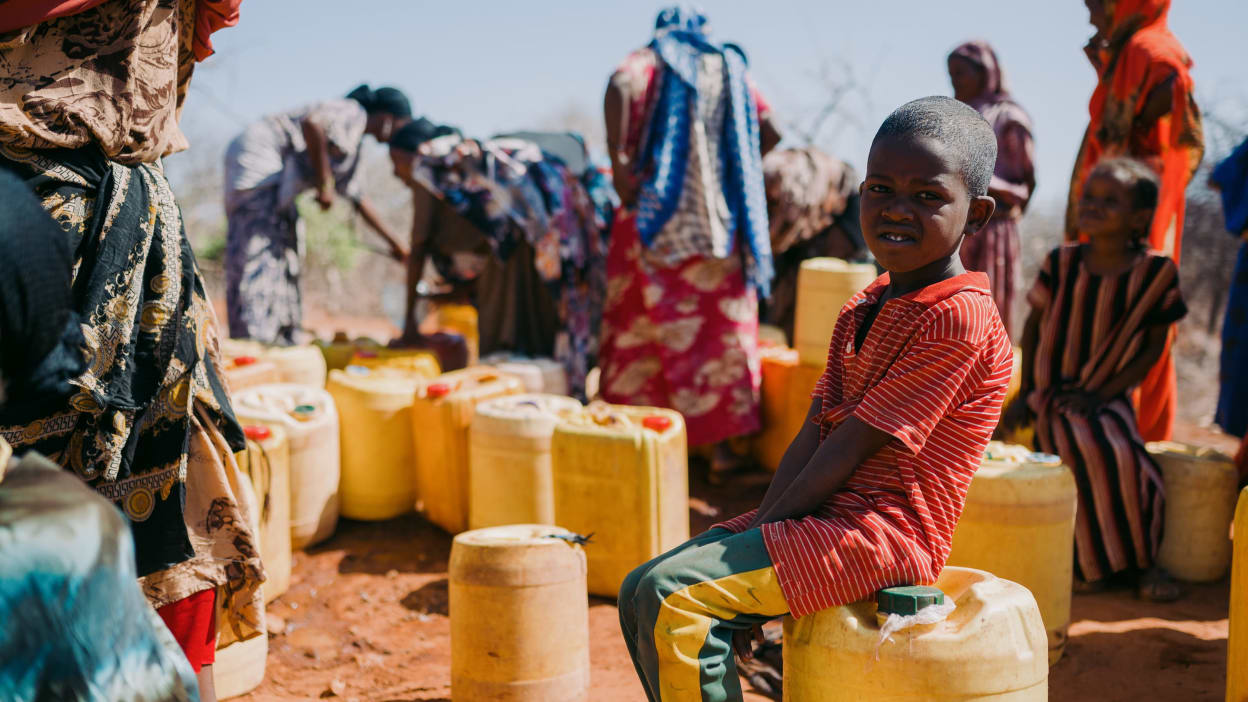
A child sits on a water container. The wells have run dry and communities are reliant on trucks to bring water. Credit: Tom Price/Tearfund
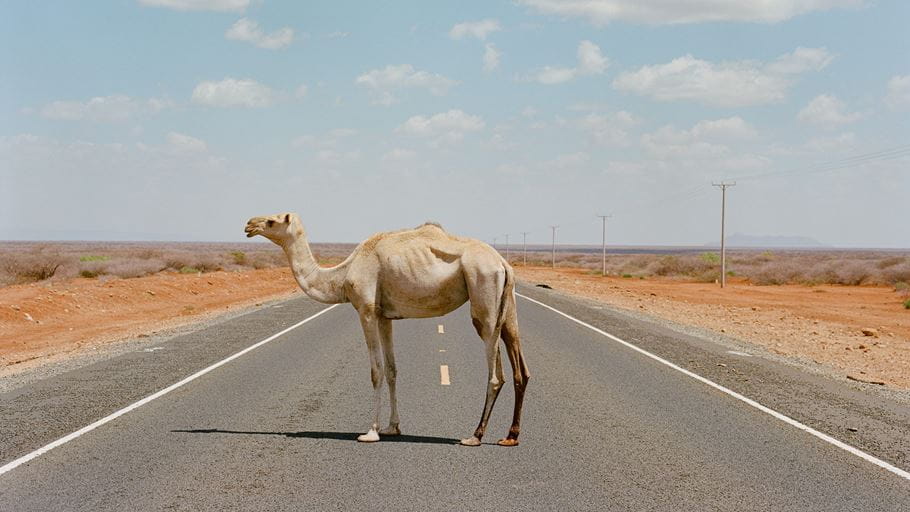
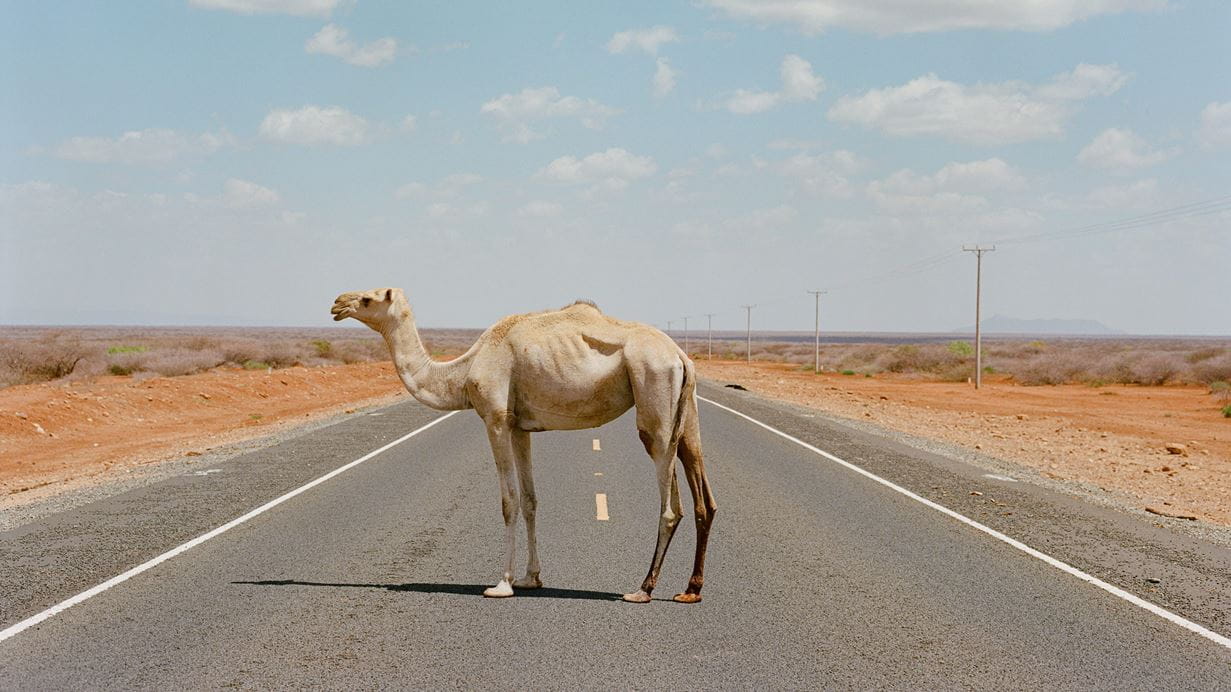
A lone, skinny camel stands in the middle of a road in Kenya. Drought has caused the deaths of many of these animals in spite of their natural resilience to arid conditions. Credit: Tom Price/Tearfund
Photographs without people in them don’t often affect me, but this image has haunted me since I left Kenya. Timothy Kamutu, executive director for the Anglican Development Service’s Mount Kenya East region, explained to me that of all the livestock precious to a pastoralist, the camels are particularly significant. They are multifunction creatures providing milk, meat, transport and labour. Importantly, to these arid and semi-arid regions, they are very well adapted to cope with droughts. ‘They are the last to go,’ said Timothy.
Over the course of a week, we saw a large number of camel carcasses at the edge of the road, or piled tragically in groups waiting to be burned. These sad scenes not only represented a critical financial loss to a pastoralist and their family somewhere, but also indicated just how extreme the lack of rain had become in the area.
As we were travelling between communities midweek, we came upon this solitary camel standing stock still in the middle of the road. Struck first by the visual drama and the perfect compositional arrangement, I jumped out of the vehicle and approached very slowly. Despite getting quite close, the camel didn’t move at all and even as we drove away we had to carefully skirt around it. Perhaps it was simply stubborn defiance, but when the images came back from the lab, they seemed to represent a wider sense of desperation. Proud, skinny, standing on the hot tarmac in the way of any oncoming traffic; this image came to symbolise everything about the attrition of hope that we encountered that week.
'It is the end of the world’
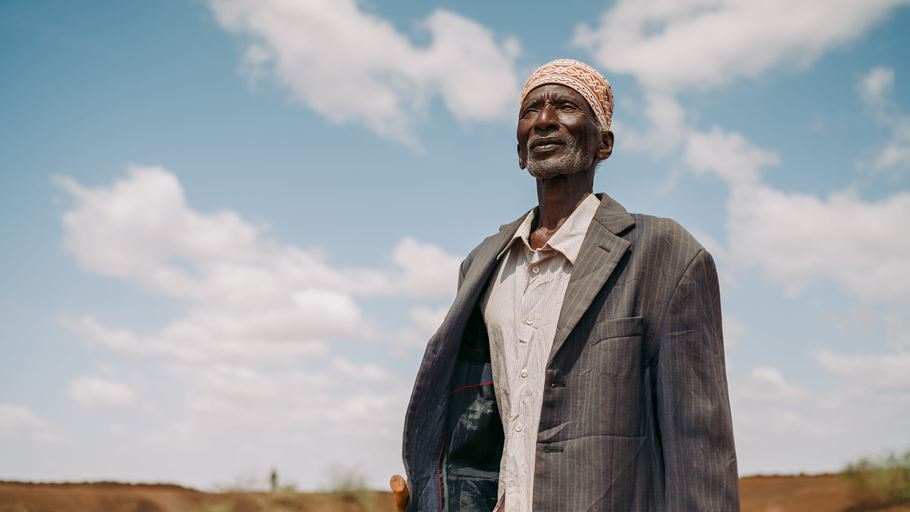
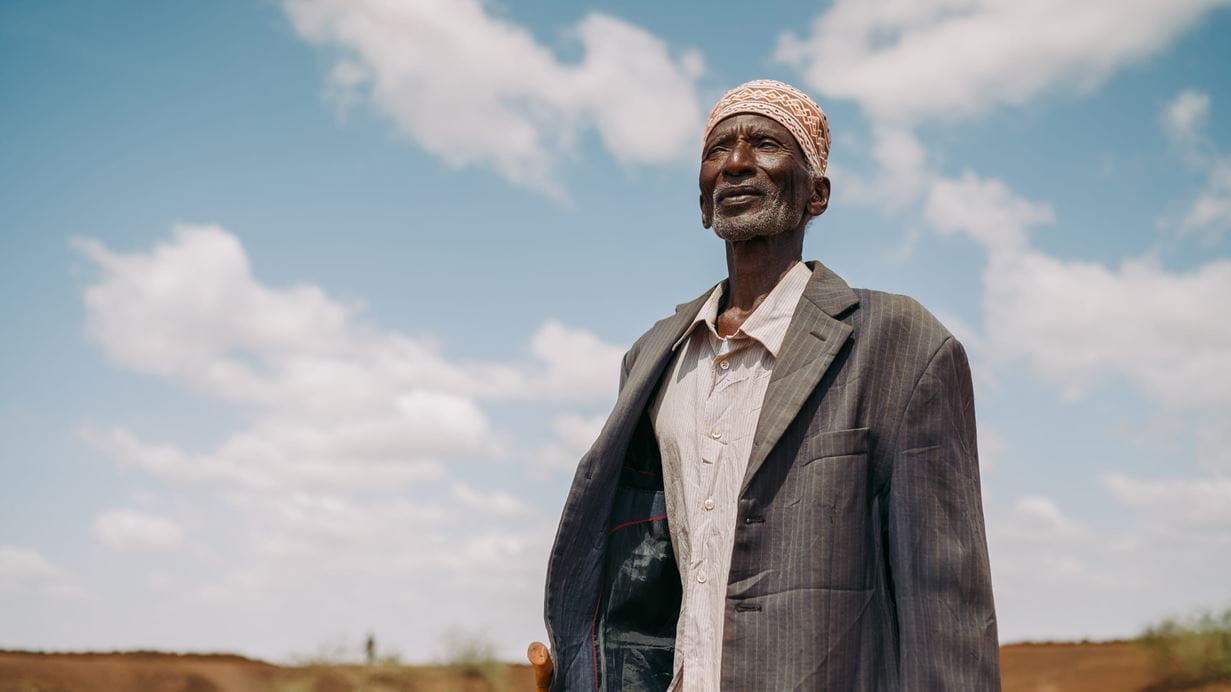
Guyo Malicha Buri, 85, lost his whole herd of 80 cattle to the drought in East Africa. Credit: Tom Price/Tearfund
'It is the end of the world,’ said 85-year-old village elder, Guyo Malicha Buri, as he described the drought as the worst he had ever seen. His was the first drought-affected community that we visited on the trip. As we gathered around a dry water pan that the community was preparing in readiness and hope for the spring rains, the stories of loss, struggle and fear began to pour out from those we met.
Guyo had lost his entire herd of 80 cows, presumably ending his way of life for ever, and yet he spoke not of his own loss, but of his sorrow in no longer being able to support an orphaned boy through school any more. He radiated dignity and grace and wanted to tell us how grateful he was that we had come to witness what they were going through – that the little support they had received had got them this far.
Rock bottom
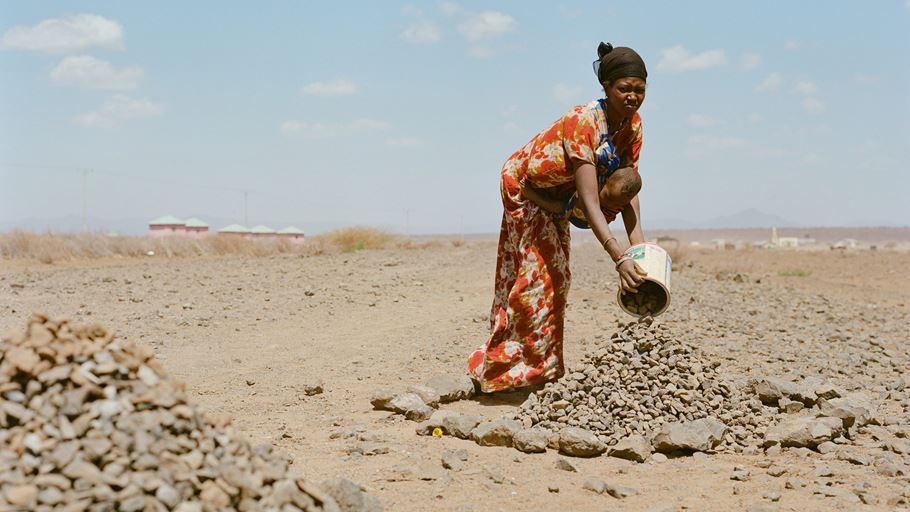
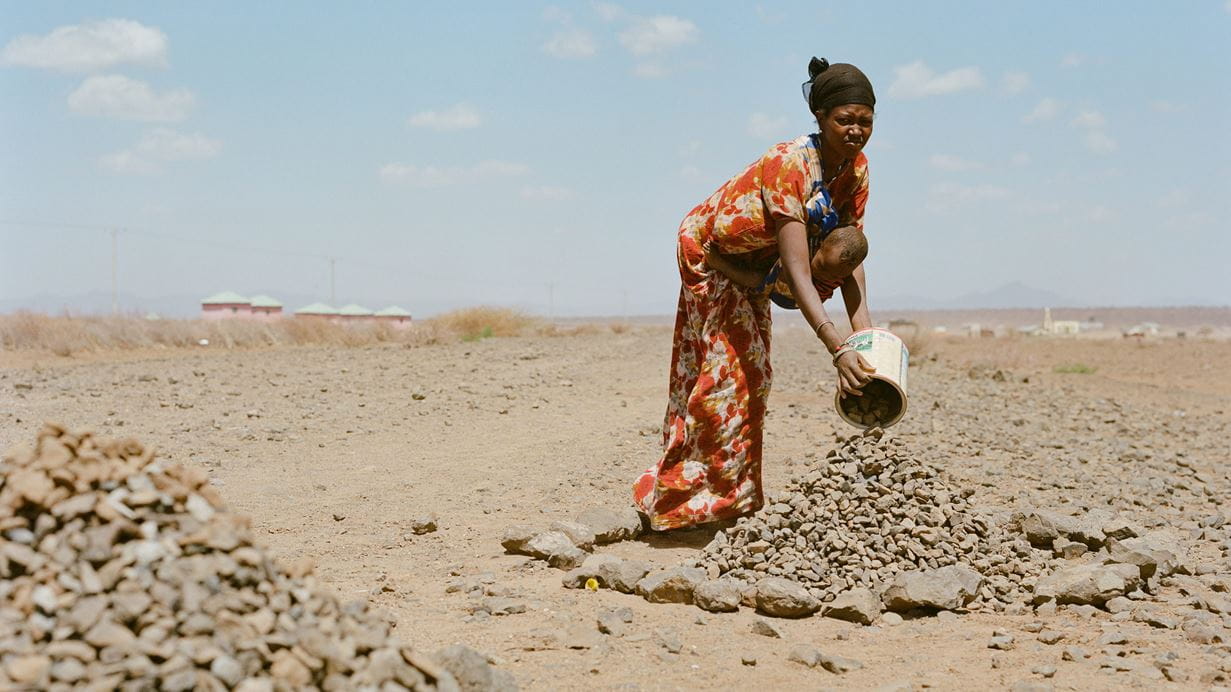
A woman in Rawana, Kenya, works to hammer rocks into ballast, her small child strapped to her chest. Credit: Tom Price/Tearfund
When I think of breaking rocks, the associations that immediately come to mind are ones of punishment and convict labour. We had heard about communities that had lost livestock having to find new ways of making money to feed their families. But, when we arrived in Rawana – a flat, wind-whipped expanse of sand, studded by small clusters of mud-wall thatch-roofed homes – greeted by scenes of elderly women and women with babies slung from their chests hammering rocks into ballast, stone chips flying everywhere with terrifying speed, the prison-like nature of their situation felt horribly real.
The cost of education
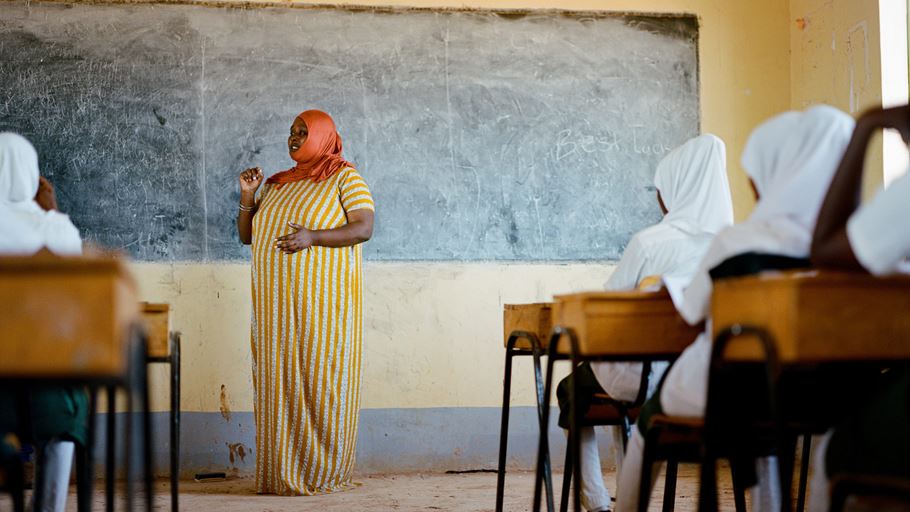
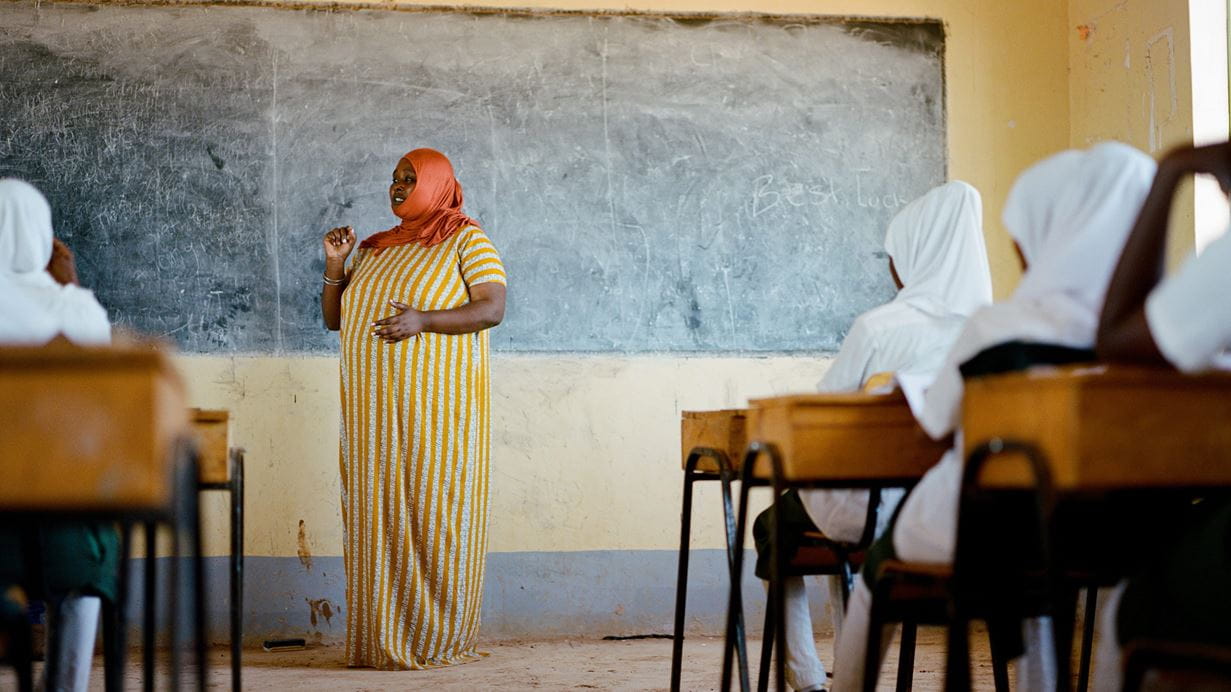
Bokayo Diba, headteacher of the girls’ school in Turbi, Kenya, continues to provide food and education for her students even though most have been unable to pay their fees. Credit: Tom Price/Tearfund
Generally, I really enjoy visiting schools on work trips. I have two daughters – one in primary school – and here in the UK, as in other countries, there is often an electric atmosphere when children are gathered together and a visitor arrives to disrupt the daily schedule. The week that we travelled, the schools in Kenya were returning from the Christmas break. One of the fears was that, as the situation escalated, parents would not be able to afford to return their children to school at the start of the new term. Bokayo Diba, the headteacher of the girls’ school in Turbi, told us that at her school, around 90 per cent of the children had returned, but that most hadn’t paid their fees. Despite this, she was determined to keep the school running on credit to support the children and their parents’ pleas to feed and educate them as they were unable to do so at home.
As I stood at the front of the class, cameras dangling from my arms, Bokayo called out to the girls, ‘Now is your chance to practise your English!’ It all felt wonderfully normal and fun for a moment. Later on, I thought about my girls and the privileges they have, but seeing Bokayo in action, and hearing her talk about how important it was for girls to be educated, I could see how these students were also fortunate to have such an inspiring and resourceful head teacher. But, just how long Bokayo would be able to keep the school open for in these conditions, it is hard to say.
Water is life
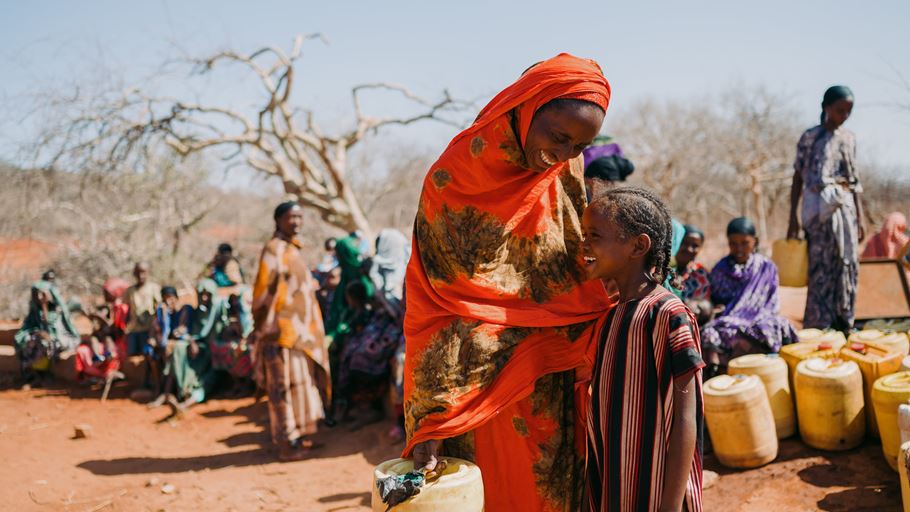
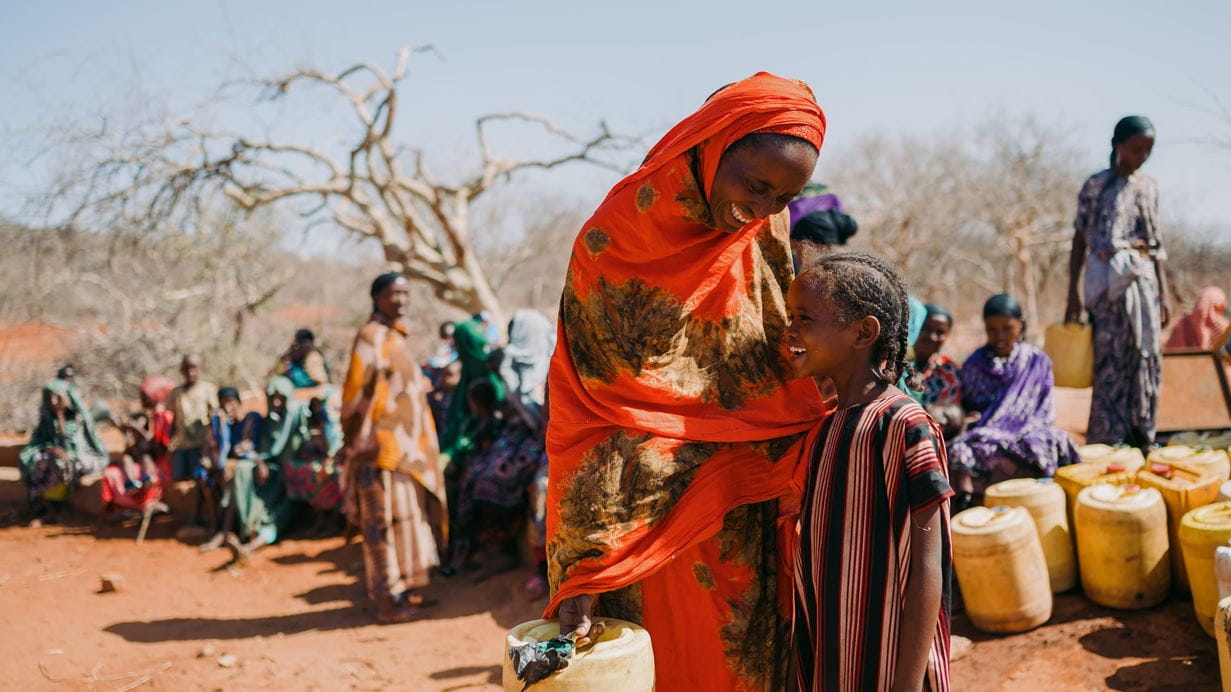
The release of laughter. Malich, 28, and her daughter, Guyayu, 6, share a smile while they wait to collect fresh water. The wells have run dry and communities are reliant on trucks to bring water. Credit: Tom Price/Tearfund
Finally, I am slightly conflicted about including this image as part of my selection as I don’t want to undermine the wider sense that what we witnessed was really really hard for people, or even to suggest that this particular moment was uniformly joy-filled. But, it also wouldn’t be right to negate the reality that, amidst the crisis, there were moments of humour, of tenderness, of the rich complexity of humanity – even when facing extremely challenging circumstances.
As the water table has dropped because of the lack of rains, the wells have run dry and communities are reliant on water trucks to refill tanks which they have to eke out little by little in temperatures soaring past 40 degrees centigrade.
The tank in Funan-Idha had just been refilled and the whole community had gathered to fill jerry cans with precious drinking water. Women and children calmly queued and chatted while waiting for their turn and there was a buzz in the air as people caught up with each other and tolerated this stranger in their midst flitting around with a light meter and a bag of film.
I took some portraits of people as they made their way home and caught mother and daughter Malich Sora (28) and Guyayu Abdi (6) heading back with a jerry can. They initially looked very solemn as they lined up in front of me, so I asked them whether they’d mind looking at each other rather than directly at the camera. As their eyes met, the solemnity lasted for about a second before they burst into bubbling spontaneous laughter, Malich’s hand instinctively reaching out to rub Guyayu’s back. It was clearly a release for them to laugh.
Written by

Written by Tom Price
Similarly Tagged Content
Share this page
Share this page to spread the word and help support those in need.

Get our email updates
Learn about our work and stay in touch with Tearfund. Hear about our news, activities and appeals by email.
Sign up now - Get our email updates





